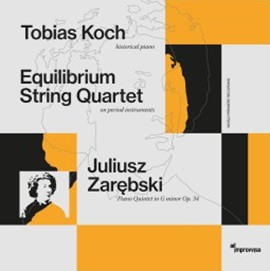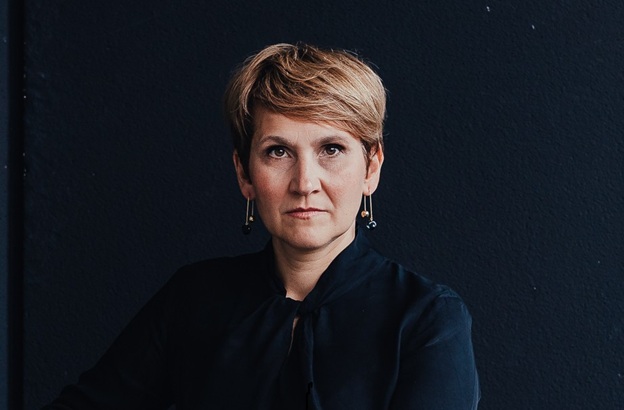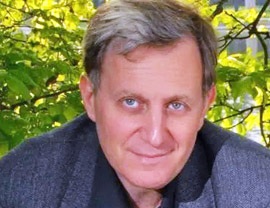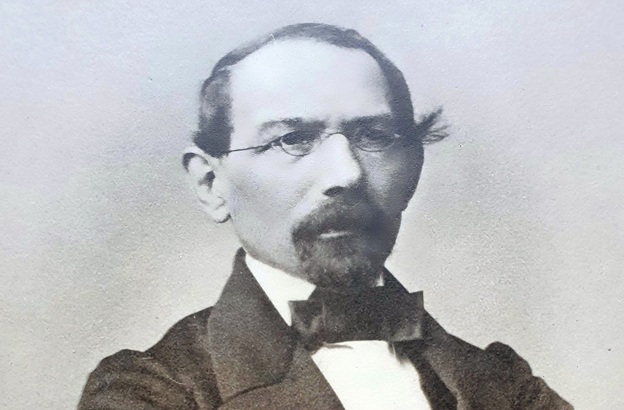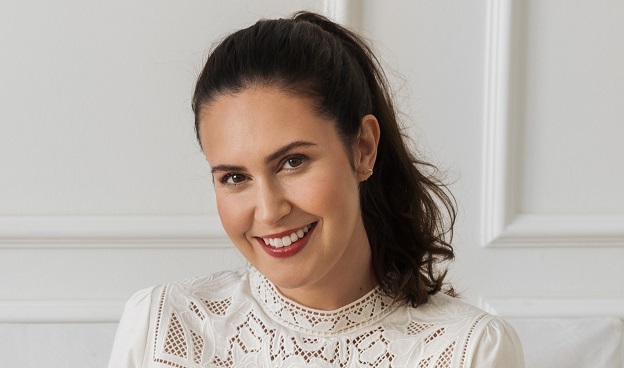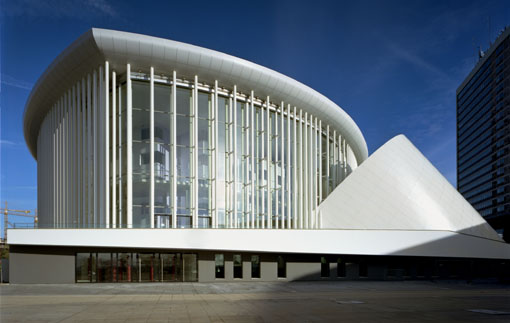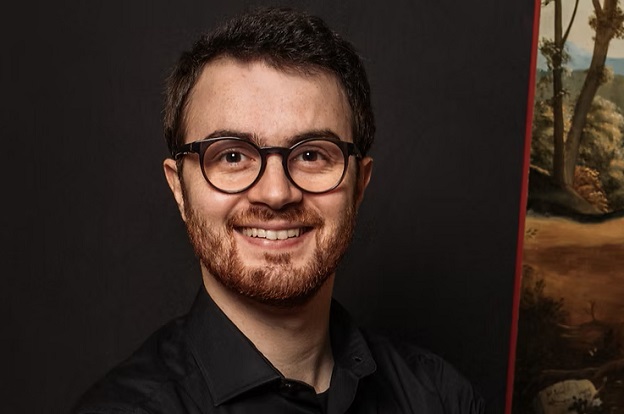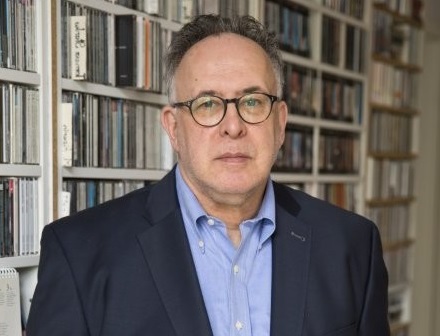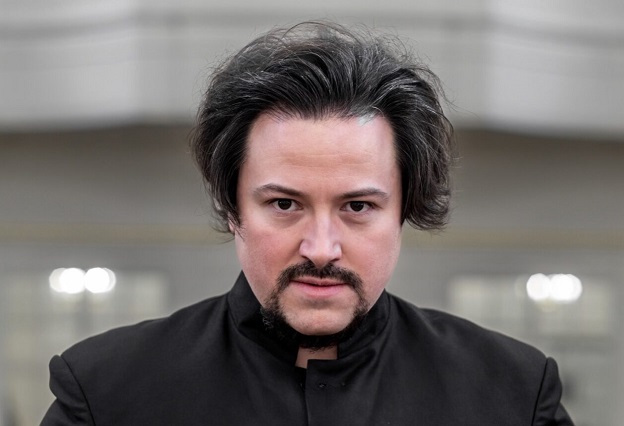Meine Begegnung mit Eva Resch war ganz wunderbar. Die Zeit verging wie im Fluge, so anregend und informativ war die Unterhaltung. Kurzum: Eva hat mich begeistert. Wenn ich diese außergewöhnliche Künstlerin in drei Worten umschreiben sollte, dann wählte ich die Worte: klug-mutig-authentisch. Read More →
Why an all-Lyadov program?
I could answer: ‘out of habit’, at least for the piano. Although I have sometimes, in a program of mélodies, displayed two names, Ravel and Poulenc, Debussy and Roussel, or even a dozen in my Hommage à Cocteau (with the baritone Jean-François Gardeil), none of my piano discs has mixed composers. Monographs, always! Work on a single creator is more concentrated, more ‘one’. Not to mention, forgive me for joking, that in the days of record shops, monographic discs were easier to store in bins! But here’s a more serious reason: simply because Liadov’s music is so worth playing, and listening to, that it would be a shame not to… fill a whole disc with it! Read More →
« Der Componist ist ein junger talentvoller, musikalisch sehr gründlich gebildeter Mann; er lebt in Wesel und hat noch keinen öffentlichen Wirkungskreis erlangen können. Sein Stil ist ernst, es scheint sogar, als fiele es ihm schwer, seinen Gedanken eine gewisse Leichtigkeit und freie Anmuth zu geben, wodurch sich bei dem Hörer bisweilen das Gefühl einer gewissen Unbehülflichkeit in den Wendungen erzeugt. Read More →
Eine Geigerin, die sich mehr als Rumänin denn als Deutsche fühlt, obwohl sie in Gelsenkirchen geboren wurde. Ein Album, das aus einem spontanen Galopp durch die Karpaten entstand. Etüden-Capricen eines nie kennengelernten Großvaters, die wie persönliche Briefe klingen. Lelie Cristea hat mit Carpathian Tales weit mehr geschaffen als eine Musikeinspielung – sie hat eine vergessene Welt wiederentdeckt und dabei ihre eigene kulturelle Identität erforscht. Read More →
Vor 20 Jahren, am 26. Juni 2005 wurde die Philharmonie in Luxemburg eröffnet. Pizzicato berichtete unter dem Titel: Ein Saal der Superlative. Hier ist was damals (noch in der Printausgabe) veröffentlicht wurde. Read More →
Marco Pütz, gerade wurde Ihr Werk Euphonia‘s Voice für Euphonium in der Philharmonie vom Luxembourg Philharmonic uraufgeführt, obwohl es schon vorher von einem anderen Orchester eingespielt wurde.
Ja, Euphonias’s Voice ist ein Auftragswerk der Philharmonie Luxemburg und des Luxembourg Philharmonic. Ich habe diesen Auftrag vor rund 7 Jahren erhalten und habe das Werk 2019 fertiggestellt. Leider ist dann die Corona-Krise dazwischengekommen und hat die ganze Planung dann über Bord geworfen. Währenddessen war allerdings der deutsche Dirigent Alexander Merzyn, Generalmusikdirektor in Cottbus, auf meine Musik aufmerksam geworden und führte mein Tuba-Konzert auf. Read More →
Recording all of the 18 piano sonatas by Wolfgang Amadeus Mozart is no small project that can be completed « in passing. » When did the desire to tackle this mammoth task awaken in you?
During the COVID-19 pandemic, I had already planned to record three more Mozart sonatas. Then it hit me that I should just record all of the sonatas, since I already had them in my repertoire for so long. Read More →
You studied organ and harpsichord, earning Master’s degrees in both, have won multiple prestigious awards in international competitions, and perform as a soloist on both instruments. You are Italian – so, forgive the cliché – were you simply born musical? Or, to put it another way: do you come from a family of musicians?
I don’t come from a family of musicians, but my family certainly passed on a deep passion for and appreciation of art, and music in particular. My father has always been a great lover of classical music, especially the organ and its repertoire. My uncle, meanwhile, is a regular at the opera and, though not a musician himself, a keen connoisseur of many operatic works. That’s where my own passion for the world of opera and theatre also began. So, even if I wasn’t actively involved in music from the start, it was always part of my life. Read More →
Herr Hoffmeister, Sie arbeiten seit Jahrzehnten für diverse Klassik-Medien. Was ging in Ihnen vor, als man Sie darum bat, für die Stiftung ‘Zukunft Gewandhaus zu Leipzig Projekte GmbH’ ein Radio im Namen des Gewandhauses aufzubauen?
Wenn man über 40 Jahre hinweg in unterschiedlichen Bereichen der Medienlandschaft, im Print- und Online-Segment, ebenso wie bei TV-Anbietern und Radios in verschiedenen Formaten tätig war, insbesondere aber die Neugründung von mehreren Kultur- und Klassikprogrammen begleitet hat, dann ist man natürlich positiv gestimmt gegenüber einer Option wie dieser, gleichzeitig verspürt man jedoch auch Demut und Respekt. Read More →
Herr Enders, gerade ist Ihre Welterstaufnahme der Symphonie Nr. 1 von Günter Raphael erschienen. Günther Raphael (1903 – 1960) war ein sehr produktiver Komponist, ist aber dennoch im Vergleich zu seinen Zeitgenossen wie z. B. Paul Hindemith und Carl Orff in den Konzertsälen und auf dem CD-Markt unterrepräsentiert und auch als Künstler kaum bekannt. Was sollte man über ihn wissen?
Günter Raphael blickt zu Beginn seines Schaffens voller Ideen und Zweifel in die Zukunft und wissbegierig auf die Vergangenheit zwischen Schütz und Sibelius. In den Jahren nach dem Ersten Weltkrieg komponiert der junge Raphael wie einer, der um ein zusammengestürztes Schloss wandelt, in dessen Trümmern sich viele Schätze finden. Er entdeckt und birgt sie, ohne von ihnen sein Glück zu erhoffen. Read More →




